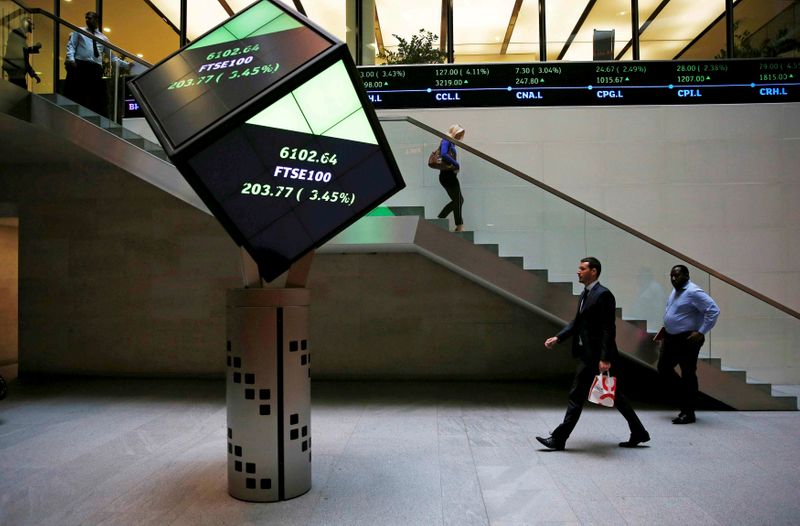By Shashank Nayar and Ambar Warrick
(Reuters) - The FTSE 100 rebounded from early losses on Friday to snap a three-week losing streak as growing hopes for a coronavirus vaccine pushed up the healthcare sector.
The blue-chip FTSE 100 ended up 0.6%, bolstered chiefly by AstraZeneca amid anticipation of a deal with Russia to manufacture a COVID-19 vaccine being developed by the drugmaker and Oxford University.
AstraZeneca had pushed up the FTSE 100 through the week on optimism over the development of its COVID-19 vaccine. The bluechip index added 3.2% for the week.
The mid-cap FTMC ended up 0.2% for the day, coming off early losses after Bank of England Governor Andrew Bailey said that Britain's economy was starting to recover from its coronavirus lockdown.
After a stock market rally powered by historic stimulus and improving macroeconomic indicators, analysts said investors were looking to quarterly earnings updates from marquee companies to gauge the pace of the recovery in the latter half of this year.
"Markets have so far been rising on hope but investors right now are more cautious and would wait for progress in corporate numbers before they enter markets again," said Andrea Cicione, strategist at TS Lombard.
Global miner Rio Tinto (LON:RIO) was among the top boosts to the FTSE 100 after posting stronger second-quarter iron ore shipments and flagging improving Chinese demand for the steelmaking ingredient.
Improving Chinese demand has pushed up metal prices, while weakness in the pound has helped local resource exporters. Miner Fresnillo Plc (LON:FRES) was the best weekly performer on the FTSE 100, adding about 16%.
On the other hand, Burberry was the worst weekly performer on the FTSE 100 after it said it would cut about 500 jobs in the face of sluggish demand for luxury goods. The stock shed more than 5% for the week

Banking major HSBC shed about 1.6% for the day after Reuters reported that the bank's global equities chief Hossein Zaimi was stepping down.